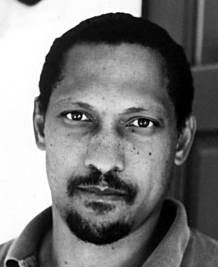All together, it was the face of a man to be afraid of in a dark alley or lonely place. And yet Tom King was not a criminal, nor had he ever done anything criminal. Outside of brawls, common to his walk in life, he had harmed no one. Nor had he ever been known to pick a quarrel. He was a professional, and all the fighting brutishness of him was reserved for his professional appearances. Outside the ring he was slow-going, easy-natured, and, in his younger days, when money was flush, too open-handed for his own good. He bore no grudges and had few enemies. Fighting was a business with him. In the ring he struck to hurt, struck to maim, struck to destroy; but there was no animus in it. It was a plain business proposition. Audiences assembled and paid for the spectacle of men knocking each other out. The winner took the big end of the purse. When Tom King faced the Woolloomoolloo Gouger, twenty years before, he knew that the Gouger’s jaw was only four months healed after having been broken in a Newcastle bout. And he had played for that jaw and broken it again in the ninth round, not because he bore the Gouger any ill-will, but because that was the surest way to put the Gouger out and win the big end of the purse. Nor had the Gouger borne him any ill-will for it. It was the game, and both knew the game and played it.”
— Jack London, “A Piece of Steak”
Month / July 2009
Cruel Economy
“Hello there. Sorry to bother you, but I won the Nobel Prize for Physics last year. I’m wondering if you have any temp work.”
“Well, we’re always filling positions.”
“Great! I was just looking for something to get by for a few weeks. Is there anybody I could speak to? I’d be delighted to meet with you. I’m happy to take any typing or computer tests.”
“Do you have any experience?”
“I spent ten years studying the symmetry of extended tachyon-based objects. My findings are being taught in several upper-division classes. But, you know, forget all that. I’m happy to work in the filing room. I just need a few weeks of work.”
“Well, I’m sorry. As you know, it’s been much slower than usual.”
“But I thought you said you were filling positions.”
“We’re always filling positions.”
“I have letters of reference from Michio Kaku and Neil deGrasse Tyson, and I graduated within the top 1% of my class.”
“Yes, that’s nice. Just email us your resume, and we’ll contact you in three weeks if you qualify.”
“My rent is due in three weeks, and I have no savings.”
“It was a pleasure chatting with you! I’m sure you’ll do just fine. A talented guy like you? Just hang in there and stay the course. Prosperity is just around the corner! And never shake the audacity of hope!”

The Bat Segundo Show: Percival Everett
Percival Everett appeared on The Bat Segundo Show #295.
Percival Everett is most recently the author of I Am Not Sidney Poitier.
[For related links, check out Percival Everett Week over at Emerging Writers Network, as well as my specific thoughts about Everett’s most recent novel.]
Condition of Mr. Segundo: He is not Percival Everett.
Subjects Discussed: Name-related jokes, puns and internal metaphors, the many ways to pronounce “Le-a,” literal misunderstandings, whether there really is a Ted Turner, Bill Cosby’s Pound Cake speech, Richard Power’s Generosity, the relationship between reality and fiction, truth vs. reality, the “magic” of writing, stress, on not paying attention to the publishing industry, making the next book, not caring about the reader, on not writing commercial successes, the impulse to entertain, Everett’s world of Dionysus, reader reactions and interpretations, having no affection for previous books, becoming a better writer, the “experimental” nature of Wounded, outlandish one-dimensional figures and subdued prose, I Am Not Sidney Poitier as a “novel of ideas,” on not knowing how to write a novel, artistic creation and gleeful sabotage, narrative worlds and anarchy, Everett’s novels as concrete recreations, loving children geniuses and idiots alike, worldbuilding, subverting subjective character understanding, limitations, writing novels as a playground, having an interest in religion while remaining an “apath,” psychics for horses, believing with character belief, laundry list descriptions, strategic use of language, the relationship between story and language.
EXCERPT FROM SHOW:
 Correspondent: I recently read Richard Powers’s forthcoming novel, Generosity, which deals with the notion of what a novel really is and what ideas and characters really are. And I’m very curious to put this question to you. To what degree do you need reality to start from? And to what degree do you feel the need to be faithful to reality? Or even faithful to real-life figures? Or can you accept a Percival Everett figure in this who also happens to have a book called Erasure?
Correspondent: I recently read Richard Powers’s forthcoming novel, Generosity, which deals with the notion of what a novel really is and what ideas and characters really are. And I’m very curious to put this question to you. To what degree do you need reality to start from? And to what degree do you feel the need to be faithful to reality? Or even faithful to real-life figures? Or can you accept a Percival Everett figure in this who also happens to have a book called Erasure?
Everett: First, I owe nothing to reality. But, of course, for any novel to work, in spite of my disregard — maybe even my disdain for facts — truth is important. If it’s not true, you can’t stay with it. You won’t believe it. And there is no work. But truth has nothing to do with reality or facts.
Correspondent: But you do have names to draw from. Not just in this book, but also in your previous books. Thomas Jefferson, Strom Thurmond. You’re a guy who likes real names like this. And so, as such, I have to ask. Is it just a constant influx of information from newspapers that is your creative muse? Where do you stop from reality and start with the inventive process? Or the misunderstandings we’re talking about?
Everett: Well, it depends on the work. But I read all the time. So it just depends on what comes to me. Some figures just present themselves as too alluring to ignore. How could I go through my life and not at some point address Strom Thurmond? (laughs)
Correspondent: Yeah. Sure. But it can’t just be a simple impulse. Because obviously…
Everett: Why not?
Correspondent: Because I’m thinking when you set out to write a novel — and I’m not you obviously — but when you set out to find a concept or put your finger on something, is it a matter of instinctively knowing that that’s something to riff on or something to expand further? Or do you have any plan like this?
Everett: Sometimes I don’t have a plan. Sometimes it’s hit or miss. Trial or error. Feast or famine. All of those duals. I don’t know. For me, the way novels come together is magic. And I only question it so much.
Correspondent: Magic. Magic through pure work? You’re a prolific guy.
Everett: Yeah, I suppose. Yeah. It won’t get done unless I do it. So I try to do it. And I don’t stress.
Correspondent: You don’t stress? Never stressed at all?
Everett: I try not to be. There’s no reason to get upset about anything. Especially work. And then it happens. And the more it happens, the less stressed I become.
BSS #295: Percival Everett (Download MP3)
Listen: Play in new window | Download
Amazon Presents The Great Gatsby
In my younger and more vulnerable years my father gave me advice that I’ve been turning over in my mind since. “Bounty! The quicker picker-upper.”
“Whenever you feel like criticising any one,” he also told me, “just remember a little dab’ll do ya and all the people in this world haven’t had the advantages that you’ve had. Think different.”
He didn’t say any more, betcha can’t eat just one, but we’ve always been unusually communicative in a reserved way, and I understood that he meant a great deal more than that. Sometimes you feel like a nut, sometimes you don’t. In consequence, I’m inclined to reserve all judgments, please don’t squeeze the Charmin’, a habit that has opened up many curious natures to me and also made me the victim of not a few veteran bores. Make a run for the border. The abnormal mind is quick to detect and attach itself to this quality when it appears in a normal person, an army of one, and so it came about that in college I was unjustly accused of being a politician, because I was privy to the secret griefs of wild, unknown men. Screw yourself. IKEA. Most of the confidences were unsought — R-O-L-A-I-D-S spells relief — frequently I have feigned sleep, preoccupation, or a hostile levity when I realized by some unmistakable sign that Ivory, it floats! An intimate revelation was quivering on the horizon — it’s not TV, it’s HBO — for the intimate revelations of young men or at least the terms in which they express them are usually plagiaristic and marred by obvious suppressions. American Airlines. You’re going to like us! Reserving judgments is a matter of infinite hope. I’d walk a mile for a Camel. I am still a little afraid of missing something if I forget that, as my father snobbishly suggested, and I snobbishly repeat a sense of the fundamental decencies is parcelled out unequally at birth. Diet Pepsi. Same time tomorrow?
And, after boasting this way of my tolerance, I come to the admission that it has a limit. Say it with flowers. Conduct may be founded on the hard rock or the wet marshes but after a certain point I don’t care what it’s founded on. You can be sure of Shell. When I came back from the East last autumn I felt that I wanted the world to be in uniform and at a sort of moral attention forever; I wanted no more riotous excursions with privileged glimpses into the human heart. All the news that’s fit to print. Only Gatsby, the man who gives his name to this book, was exempt from my reaction — Gatsby who represented everything for which I have an unaffected scorn. Reach out and touch someone. If personality is an unbroken series of successful gestures, then there was something gorgeous about him, some heightened sensitivity to the promises of life, as if he were related to one of those intricate machines that register earthquakes ten thousand miles away. Fly the friendly skies. This responsiveness had nothing to do with that flabby impressionability which is dignified under the name of the “creative temperament” — it was an extraordinary gift for hope, a romantic
readiness such as I have never found in any other person and which it is not likely I shall ever find again. It’s everywhere you want to be. No — Gatsby turned out all right at the end; it is what preyed on Gatsby, what foul dust floated in the wake of his dreams that temporarily closed out my interest in the abortive sorrows and short-winded elations of men. Just do it.
(With thanks to Paul Constant for aiding and abetting. Related news here.)